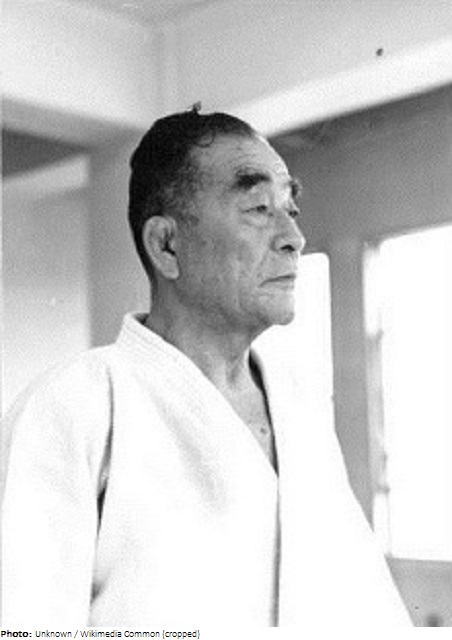
| Roles | Competed in Olympic Games |
|---|---|
| Sex | Male |
| Full name | Sumiyuki•Kotani |
| Used name | Sumiyuki•Kotani |
| Original name | 小谷•澄之 |
| Born | 3 August 1903 in Nakagawa, Aogo, Hyogo (JPN) |
| Died | 9 October 1991 (aged 88 years 2 months 6 days) in Nishinomiya, Hyogo (JPN) |
| Measurements | 162 cm / 69 kg |
| Affiliations | South Manchuria Railway, Manchuria (CHN) |
| NOC |  Japan Japan |
Sumiyuki Kotani’s talent for judo was discovered during his school days when he managed to defeat boys much taller and heavier. He represented his school successfully in nation-wide tournaments and was introduced to the Kodokan in 1921. In 1923, he moved to Tokyo to attend the Tokyo Higher Normal School. The intensive training during this time earned him the necessary physical skills and technique and he competed in the Meiji Jingu Games for the first time.
After graduating in 1927, Kotani was transferred as an assistant professor to Kumamoto Prefecture to teach judo. By this time, he had reached the 5th Dan and competed in a legendary tournament between the neighboring prefectures of Kumamoto and Fukuoka. In 1929, he joined the South Manchuria Railway and continued to teach judo there. He represented Manchuria in regional and national tournaments and acted as the director of the physical education section of the Manchurian government.
While traveling to Europe and the US for his employer, he was asked to compete in wrestling at the 1932 Los Angeles Olympics. Because Japan was already represented in the lightweight class he had to move up to middleweight. However, he was the most successful Japanese wrestler in Los Angeles, losing only to the eventual medalists Ivar Johansson and József Tunyogi. He later accompanied Japan’s IOC member Jigoro Kano, promoting judo and Tokyo’s bid for the 1940 Olympics. After having received the 7th Dan from Kodokan he traveled various South American countries in 1939 as a judo instructor.
After World War II Kotani returned to Japan and established the Osaka Judo Club. Serving in the Kodokan since 1949, he held important positions. In order to popularize his sport he frequently traveled to Europe, North America, and Asia. He also worked for the Japanese government and acted as Vice-Chairman and Advisor of the All Japan Judo Federation. In 1968, he was appointed a professor at Tokai University. At the age of 80, he received the 10th Dan during a ceremony on the Kodokan’s 100th anniversary to become the oldest holder of this rank. He later returned to Hyogo, his home prefecture, and died there from pneumonia in 1992. Two years later, he was inducted into the Kodokan Hall of Fame.
| Games | Discipline (Sport) / Event | NOC / Team | Pos | Medal | As | |
|---|---|---|---|---|---|---|
| 1932 Summer Olympics | Wrestling |  JPN JPN |
Sumiyuki Kotani | |||
| Welterweight, Greco-Roman, Men (Olympic) | ||||||
| Middleweight, Greco-Roman, Men (Olympic) | ||||||
| Middleweight, Freestyle, Men (Olympic) |